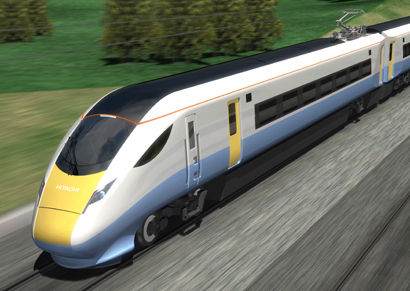THE GOVERNMENT has postponed any decision on the Intercity Express Programme until after the General Election. Transport secretary Andrew Adonis said: “There has been a reduction in the capacity of the debt market to support the transaction as originally envisaged, and passenger growth has also slowed”. There will now be an independent review of the project.
The news places a question mark over how much longer the HST fleet will now be expected to continue.
The official statement to Parliament and the Stock Exchange said: ‘The negotiations are for a contract of nearly 30 years, a multi-billion pound spend over the course of many Parliaments. In all the circumstances, the Government does not believe it would be appropriate to enter into this particular contract in the immediate run up to a general election. To ensure that a decision is taken at the beginning of the next Parliament on the basis of the fullest evaluation, the Secretary of State has today asked Sir Andrew Foster, former controller of the Audit Commission, to provide an independent assessment of the value for money of the Programme and the credibility and the value for money of any alternatives which meet the Programme’s objectives.’
Agility Trains, the consortium headed by Hitachi, said it was ‘disappointed’, but that planning would continue. In a statement, Agility said: ‘We are disappointed that a contract will not be concluded before the UK general election. However we will continue our ambitious planning for production and maintenance facilities in the UK to support the programme, in anticipation of concluding the contract under the next Parliament.’
The industry has also been responding. The chief executive of the Association of Train Operating Companies Michael Roberts said: “Whilst this may not be a surprising decision given the economic climate and the complexity of the project, it is vital that there isn’t a significant delay in reaching a decision, as new trains that will improve services for passengers are much needed.”
He added: “The best way to get value for money would be to give train companies a greater role in buying their own rolling stock. This would get things done quicker and cheaper, ensure that the right rolling stock gets to the right places at the right time and give passengers and taxpayers the best deal. An independent assessment of the scheme will provide a good opportunity for ministers to rethink their approach and ensure that value for money is at the heart of the programme.”


